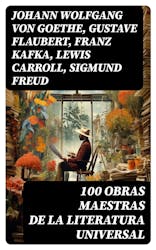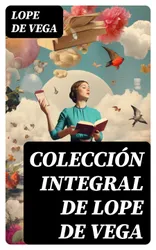Lope de Vega's 'The Pilgrim of Castile; or, El Pelegrino in Su Patria' is a captivating work of literature that blends elements of adventure, romance, and religious exploration. Written in the early 17th century, the book follows the protagonist, a pilgrim from Castile, on a journey filled with encounters with diverse characters and moral dilemmas. De Vega's masterful storytelling and vivid depiction of the Spanish landscape immerse the reader in a world that is both familiar and fantastical. The book's rich language and intricate plot make it a timeless classic that continues to captivate readers today. Lope de Vega, a prolific Spanish playwright and poet, drew inspiration from his own experiences and observations of society to create 'The Pilgrim of Castile'. Known for his ability to blend realism with imagination, de Vega's works often explore themes of love, honor, and social justice. His deep understanding of human nature and keen insight into the complexities of the Spanish society of his time shine through in this compelling narrative. For readers who appreciate rich storytelling, complex characters, and thought-provoking themes, 'The Pilgrim of Castile; or, El Pelegrino in Su Patria' is a must-read. De Vega's exploration of faith, morality, and the human experience will leave a lasting impact and inspire introspection long after the final page is turned.

100 Obras Maestras de la Literatura Universal
Johann Wolfgang von Goethe, Gustave Flaubert, Franz Kafka, Lewis Carroll, Sigmund Freud, Henrik Ibsen, Charles Dickens, Honoré de Balzac, Mark Twain, Immanuel Kant, Friedrich Schiller, Harriet Beecher Stowe, Oscar Wilde, Robert Louis Stevenson, Edgar Allan Poe, William Shakespeare, Dante Alighieri, Giovanni Boccaccio, Bram Stoker, Charlotte Brontë, Emily Brontë, Jack London, Henry James, Louisa May Alcott, Victor Hugo, Arthur Conan Doyle, Joseph Conrad, Jane Austen, José Rizal, Edgar Rice Burroughs, Herman Melville, Jonathan Swift, Gustavo Adolfo Bécquer, Vicente Blasco Ibáñez, Benito Pérez Galdós, Jean-Jacques Rousseau, Daniel Defoe, Pedro Calderón de la Barca, Virginia Woolf, Washington Irving, Juan Valera, Horacio Quiroga, Nathaniel Hawthorne, Charles Baudelaire, Wilkie Collins, William Makepeace Thackeray, Voltaire, Apuleius, Leopoldo Alas, John Milton, José Martí, Lope de Vega, Emilio Salgari, Francisco de Quevedo, Rubén Darío, Antonio Machado, José Zorrilla, Tirso de Molina, Emilia Pardo Bazán, Fernando de Rojas, L. Frank Baum, H. G. Wells, J. M. Barrie, H. Rider Haggard, H. P. Lovecraft, Seneca, Hans Christian Andersen, Friedrich Nietzsche, Mary Shelley, Baltasar Gracián, Sófocles, Sun Tzu, Fiódor Dostoyevski, Antón Chéjov, León Tolstoi, Tomás Moro, San Agustín, Nikolái Gógol, Julio Verne, Homero, Platón, Alejandro Dumas, Aristóteles, Hermanos Grimm, Jorge Isaacs, Ignacio de Loyola, Nicolás Maquiavelo, Miguel Cervantes, Teresa de Jesús, Alejandro Dumas hijo, Mijaíl Bakunin, Miguel De Unamuno, Duque de Rivas, Ramón María del Valle-Inclán, Federico García Lorca, Gibrán Jalil Gibrán
book
El perro del hortelano
Lope de Vega
book
El perro del hortelano
Lope de Vega
book
Fuenteovejuna
Lope de Vega
book
Colección de Lope de Vega : Clásicos de la literatura
Lope de Vega
book
Colección integral de Lope de Vega
Lope de Vega
book
The Pilgrim of Castile; or, El Pelegrino in Su Patria
Lope de Vega
book
Fuenteovejuna
Lope de Vega
book
